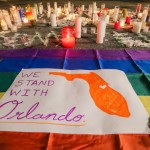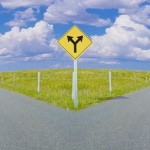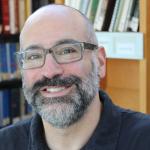The following is a modified version of the sermon I delivered this past Shabbat on the one year anniversary of the shooting at the Century Multiplex in Aurora, CO:
One Year Later: What Have We Learned from Aurora?
“Be comforted, be comforted, my people (Isaiah 40:1)” With these words synagogues around the world opened their Prophetic reading for this past Sabbath, from the prophet Isaiah. This Sabbath, the Sabbath immediately following the 9th day of the Hebrew month of Av, is named after this reading: The Sabbath of Consolation.
We have just emerged from three weeks on the Jewish calendar, beginning with the fast day of the 17th of the Hebrew month of Tammuz and concluding with the 9th of Av, of intense introspection and mournful reflection on the calamities that befell the Jewish people. On the 9th of Av we sat on the floor and read the dirges composed in the aftermath of the destruction of the Second Temple, of the Crusades, of the burning of the Talmud in Paris in 1242 and of the Holocaust. On this Sabbath, we lift ourselves up from the floor and begin to re-enter the world around us. Echoing the words of the famous song that forms the core of the service that ushers in the Sabbath on Friday night, Lecha Dodi: “Shake yourself free and rise from the dust; dress in your garments of splendor, my people.”
And yet, during this Sabbath of consolation, I found it so hard to be consoled. I found it so hard to shake myself free and rise from the dust. July 20th, 2013 is exactly one year since the horrific shooting that took place at the Century Multiplex in Aurora. One year ago twelve people were killed and another seventy wounded by one individual with tear gas grenades and multiple firearms. The truth is I almost forgot them. I almost forgot the victims and that the one year anniversary was coming except that last year July 20th was right before the 9th of Av, it’s timing both ominous and forever etched into my memory. I cannot forget them. We cannot forget them.
But, remembrance is not enough. To commit ourselves to only remember is to not fully catalyze that memory. We do not sit on the floor on the fast day of the 9th of Av just to be in the memory – we do so, in order to rectify what got us there in the first place. In the case of the 9th Av, the rabbis of the Talmud made it clear, that baseless hatred is the root cause of exile, and only its banishment will help herald in redemption. Remembrance therefore is remembrance in order to do; it is action-centered and action-focused memory.
This week’s Sabbath liturgical reading from the Book of Deuteronomy affirms this mode of remembrance for us in one of the most well known sections of the Hebrew Bible, the words that lie at the very beginning of Judaism’s central prayer, the Shema:
“And you shall write them on the doorposts of your house and on your gates. (Deuteronomy 6:4)”
The commandment of the mezuzah, the universal symbol of a Jewish home, is ultimately an act of remembrance. The central book of Jewish mysticism, the Zohar, teaches that the purpose of the mezuzah is so that a person should never forget God. Yet, that remembrance is not just for remembrance’s sake alone: It is to transform us into people emulating the highest qualities of godliness in the world as articulated by the prophet Micah: “To do justice, to love kindness and to walk humbly with God.”
If that is so: If remembrance is about lifting up that memory in order to effect true repair in the world, what is the focus of the memory of Aurora? What is the focus as we sit and ponder the needless loss of those twelve people, the injuring of another seventy and the ripple effect of trauma throughout each one of their families and friends? Has our society taken this loss and transformed it into a moment for national betterment and improvement? Have we had national conversations – productive, thoughtful conversations where people talk and listen and not only talk over each other – on our culture’s obsession with violence; on the abysmal state of mental health care in the country and particularly in Colorado and on so many other critical and pressing areas?
What did we learn from Aurora?
One month after Aurora, another individual entered a Sikh Temple in Wisconsin and took the lives of six people whose only crime was to want to pray in peace.
What did we learn from Wisconsin?
Four months after the Wisconsin shooting, another man entered an elementary school in Newtown, Connecticut and ended the lives of twenty young children and six adults, in an act that ripped the hearts out of every parent in America.
This is not even mentioning the 16,259 people killed last year in America, 11,078 by firearms alone.
This week’s reading from Deuteronomy calls upon us to set up road posts along the way to remind us of our larger mission in this world, “and you shall inscribe them on the doorposts of your house.” What are the road posts along the way for us as a community, as a society and as a country to remind us of the larger picture? What sort of actions are necessary, as we reflect on this one year anniversary of Aurora, to ensure that we become a more peaceful, more caring and a more safe society?
These are the questions that I am engaged with this week. On the Jewish calendar, this was the Sabbath of Consolation, but from our vantage point as Americans and citizens of this environment and this public square, we have a long way to go before true consolation can be experienced.
May we witness the fulfillment of Isaiah’s prophecy, those powerful and evocative words we read this week, come to their fruition:
“Everyone helped his neighbor and everyone said of his brother, ‘may you be strengthened.’”











